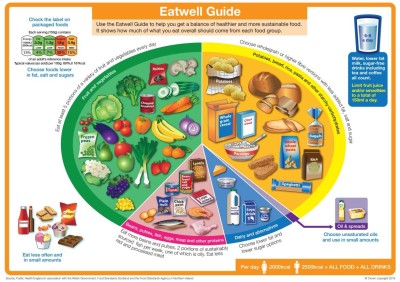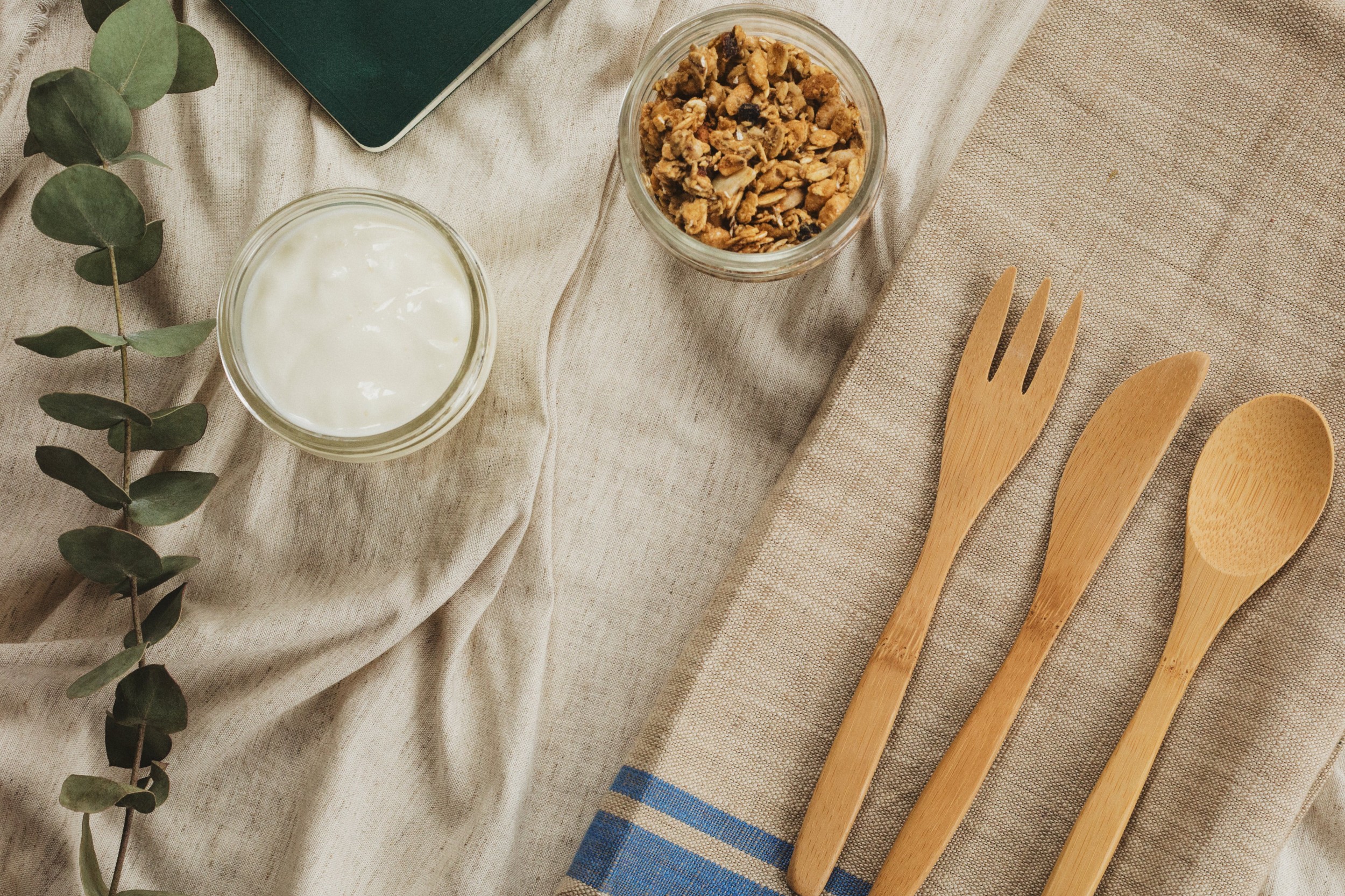Healthy eating is about ensuring your diet is well balanced with a good variety of foods you enjoy. As Registered Dietitians, we believe it is important to enjoy your food, as well as being mindful about what you eat. The Eatwell Guide is used in the UK to help us follow a balanced diet.
Physical activity is great for our health too. There are a range of benefits to increasing your activity, from lowering health conditions, such as type 2 diabetes and high cholesterol, to improving your mental health. We understand that in order to be healthy, we need healthy bodies and minds. Our mental health and sleep are vital to our wellbeing.
A balanced diet
The Eatwell Guide can be used to help us to understand what a healthy diet can look like. It shows the different food groups and how much of each should be eaten.
Fruit and vegetables
Fruits and vegetables should make up around a third of what we eat because they're filled with a range of vitamins and minerals which keep our bodies healthy, and have lots of fibre which keeps us feeling full. It's important to eat a variety of different fruits and vegetables, aiming for at least five different portions of fruits and vegetables every day. Remember that fruit juice and smoothies should be limited to no more than a combined total of 150ml a day.
Starchy carbohydrates
Starchy carbohydrates should also make up around a third of what we eat because they're our main source of energy. It's usually best to choose wholegrain versions like brown bread, as these contain more vitamins, minerals and fibre. The fibre in wholegrains helps our bodies release the energy from these foods slowly, keeping you feeling full.
Protein
Protein-rich foods should be eaten every day. Protein is used in the body for growth and maintenance of our cells, like in our muscles and skin. Protein can come from both plant and animal foods, and it's good to eat plant-proteins (legumes, tofu, Quorn) because they are low in fat, more sustainable and often cheaper.
Dairy
Milk and dairy foods are important for our bodies as they contain protein and important vitamins and minerals, like Calcium and B-vitamins. If choosing milk-free alternatives look for products fortified with these key vitamins and minerals.
Oils and spreads
Oils and spreads provide our bodies with fats and help us absorb fat-soluble vitamins. It's usually best to choose unsaturated fats (e.g. vegetable and olive oil). Oils and spreads are very high in energy (calories) so it's important to make sure we only consume a small amount.
Foods high in fat, salt and sugar (HFSS): These foods are not needed within our diets so they are shown separately on the Eatwell Guide. It's important to eat these foods less often, and only in small amounts. Using the traffic light labels on foods should help you identify foods high in fat, salt and sugar. Try to choose foods with mainly green labels, and less red labels. More information on reading food labels.



